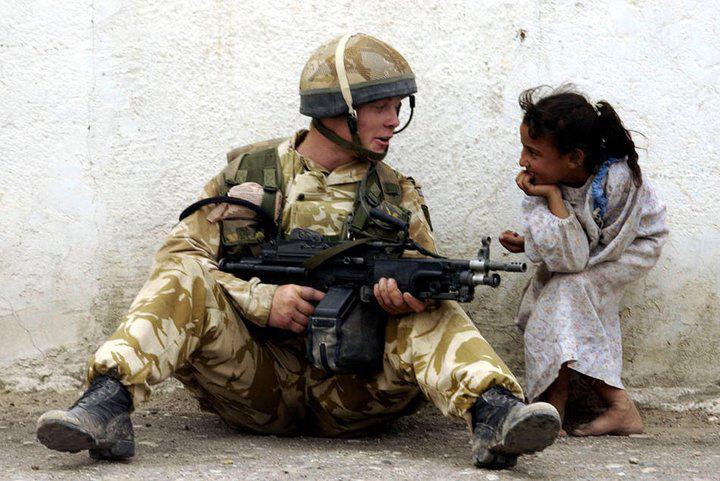In a world riddled with conflict and strife, the question, “Why do we fight wars?” emerges with profound urgency. This inquiry not only invokes historical reflection but beckons a deeper exploration of the underpinnings of human nature and societal dynamics. As we navigate this multifaceted phenomenon, the teachings of the Bahá’í Faith can offer compelling insights that challenge conventional paradigms. Through an examination of these teachings, we will explore the interplay between conflict, unity, and the ultimate aspiration for global peace.
To begin, we might ponder a playful yet poignant question: Are wars an inexorable part of the human experience, or do they represent a failure of our collective spirit? This question invites an introspective challenge, compelling us to analyze the foundational elements that incite warfare. The Bahá’í teachings assert that the roots of conflict are often embedded in ignorance, prejudice, and a lack of understanding. The Bahá’í Faith posits that humanity’s interconnectedness necessitates a reevaluation of the values that foster division and hostility.
One fundamental Bahá’í principle is the concept of the oneness of humanity. This tenet challenges the us-versus-them mentality that often precipitates conflict. The teachings encourage individuals to recognize that all people, regardless of race, nationality, or creed, belong to one human family. Acknowledging this interconnectedness is paramount in cultivating empathy and compassion, which are essential antidotes to the animosity that fuels wars. When we embrace the idea that another’s suffering is inherently our own, the rationale for waging war becomes increasingly implausible.
Additionally, Bahá’í thought places significant emphasis on justice and equity. In a world where disparities abound, the grievances of marginalized groups can often lead to uprisings and warfare. The Bahá’í Faith advocates for equitable systems and structures that prioritize justice for all individuals, mitigating the conditions that engender conflict. This reimagining of societal frameworks highlights the importance of upholding ethical governance and social equity as strategies for preventing the eruption of hostilities.
Moreover, the Bahá’í teachings elucidate the role of education in nurturing a culture of peace. Education serves as a transformative tool that fosters critical thinking, empathy, and understanding. It empowers individuals to transcend ignorance—one of the primary catalysts for conflict. In promoting a comprehensive education that encompasses moral and spiritual dimensions, societies can cultivate a populace equipped to resolve disputes amicably. Thus, the Bahá’í perspective positions education not merely as a means to impart knowledge but as a vital catalyst for peacebuilding.
Another critical aspect of the Bahá’í approach to warfare is the emphasis on consultation—a process that encourages dialogue and collective decision-making. Consultation allows for diverse perspectives to be harmonized and valued, minimizing the potential for misunderstandings that often lead to conflict. Engaging in sincere and respectful dialogue can cultivate an environment where grievances can be addressed without resorting to violence. In this context, the Bahá’í model serves as a framework for conflict resolution that promotes unity through constructive discourse.
It is also imperative to consider the moral implications of warfare within the Bahá’í context. The Faith asserts that every individual is a reflection of the Divine and, thus, possesses inherent dignity and worth. Engaging in war, therefore, raises profound ethical dilemmas surrounding the sanctity of life. The Bahá’í teachings advocate for the sanctity of human life, urging individuals to reflect on the moral consequences of their actions. In this regard, the contemplation of warfare becomes an exercise in moral reasoning—an opportunity to reassess our values and priorities as a global society.
Furthermore, the Bahá’í Faith espouses the importance of international cooperation and global governance as essential tools for extinguishing the flames of war. The vision encompasses a world where national boundaries do not impede our collective responsibility towards fostering peace. Bahá’í teachings envision the establishment of a global federation where the principles of justice, equality, and mutual respect govern international relations. This ideal transcends nationalistic fervor, promoting a sense of shared global citizenship that is critical for ensuring lasting peace.
While the insights provided by Bahá’í teachings present an optimistic framework for addressing the underlying causes of warfare, the challenge remains: How do we translate these principles into actionable steps within our societies? This question becomes a call to action—a challenge that requires collaborative efforts at local, national, and global levels. In fostering environments that emphasize education, justice, consultation, and moral integrity, individuals can work collectively towards a society where war is no longer an option but rather a relic of humanity’s past.
In conclusion, the examination of “Why do we fight wars?” through the lens of Bahá’í teachings offers profound revelations about the interplay between unity and conflict. It underscores the possibility that wars are not an immutable facet of human existence but are, instead, reflective of our collective failures to embrace our shared humanity. As we endeavor to cultivate a culture rooted in understanding, justice, and cooperation, we inextricably move closer to the realization of a world where peace prevails. Ultimately, the journey towards peace begins within individuals and communities, recognizing that the power to transform our world lies within our shared humanity.
